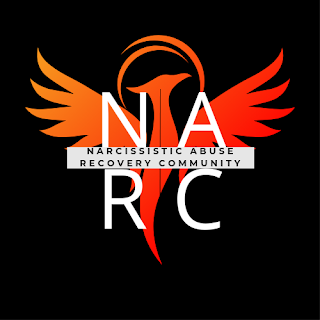The Silent War: The Devastating Effects of Psychological Warfare in Narcissistic Abuse
By Daniel Ryan Cotler | Heal Loudly Movement
The War No One Sees
Psychological warfare isn’t just something that happens in war zones or espionage it happens behind closed doors, in relationships, families, and workplaces. Victims of narcissistic abuse experience a systematic dismantling of their identity, sanity, and physical health, often without visible bruises to prove the battle they are fighting.
The consequences of emotional manipulation, gaslighting, and psychological terrorism are far more severe than most realize. From suicidal ideation and psychosis to autoimmune diseases and chronic pain, the body and mind react as though they’ve been through actual warfare because they have.
1. Suicide & The Mental Collapse of Victims
The most tragic and extreme consequence of psychological warfare is suicide. Many victims, after enduring years of gaslighting, isolation, and devaluation, see no way out. The mind becomes hijacked by an abuser’s manipulation, leaving victims feeling trapped in a cycle of despair.
How psychological warfare leads to suicidal ideation:
The abuser destroys the victim’s self-worth, making them believe they are unlovable.
Gaslighting causes extreme cognitive dissonance, making victims doubt their reality.
Isolation removes all external support, leaving them emotionally stranded.
The trauma bond creates an addiction to the abuser’s approval, leading to deep despair when that approval is withheld.
Many victims don’t just contemplate suicide they attempt it. Some, tragically, do not survive. This is why recognizing narcissistic abuse as a form of psychological violence is not just important it is a matter of life and death.
2. Psychosis & The Breaking Point of the Mind
Prolonged psychological abuse can lead to psychotic breaks, paranoia, and hallucinations. Victims may begin to:
Hear voices (often their abuser’s voice in their mind).
Experience paranoia and believe they are constantly being watched or judged.
See shadows or hallucinations due to extreme distress and fear.
Have delusions that they are being hunted, punished, or destined to suffer forever.
Many survivors who experience psychotic symptoms do not have a history of mental illness—this breakdown is a direct result of psychological warfare.
3. C-PTSD: When Trauma Rewires the Brain
Unlike traditional PTSD, which results from a single traumatic event, Complex PTSD (C-PTSD) is caused by ongoing emotional and psychological warfare. Over time, it rewires the brain, leading to:
Flashbacks & intrusive thoughts – The abuse replays like a never-ending nightmare.
Emotional dysregulation – Sudden, uncontrollable mood swings and outbursts.
Hypervigilance & extreme anxiety – Always being on guard, expecting more harm.
Loss of identity – The victim forgets who they were before the abuse.
C-PTSD can take years or even a lifetime to heal from, especially without proper support.
4. Physical Consequences: When the Body Remembers
The impact of psychological warfare does not stay in the mind—it manifests physically. Victims often suffer from:
Autoimmune diseases (Lupus, Hashimoto’s, Rheumatoid Arthritis).
Chronic pain syndromes (Fibromyalgia, migraines, joint pain).
Digestive issues (IBS, ulcers, nausea, severe weight fluctuations).
Hormonal imbalances (infertility, thyroid dysfunction, chronic fatigue).
Heart problems (high blood pressure, palpitations, increased heart attack risk).
The body literally begins to shut down under prolonged emotional warfare.
5. Trauma Bonding: When Love Becomes a Weapon
One of the most insidious effects of narcissistic abuse is trauma bonding a psychological addiction to the abuser. Victims:
Justify or defend the abuser despite clear harm.
Crave their validation even after being discarded.
Feel “addicted” to the relationship as if withdrawal will destroy them.
Blame themselves for the abuse instead of holding the abuser accountable.
Trauma bonding keeps victims trapped in toxic cycles, making escape feel impossible.
The Fight for Justice: The Voiceless Justice Act & FRANKIE Initiative
The effects of psychological warfare are just as severe if not worse than physical violence. The scars are invisible, but they destroy lives. This is why we need legal reform.
The Voiceless Justice Act
Coming Summer 2025, the Voiceless Justice Act will call for the criminalization of narcissistic abuse, enhanced legal protections for victims, and mandatory sentencing for convicted abusers. It will also push for family court reforms, law enforcement training, and public awareness campaigns to stop the cycle of abuse before more lives are lost.
The FRANKIE Initiative
The FRANKIE Initiative, named after Frankie Zerella the abuser of Daniel Ryan Cotler , will establish a national public registry for convicted narcissistic abusers. Many victims fall into the trap of a predator disguised as a soulmate, only to realize too late that they were targeted and manipulated. The FRANKIE registry will serve as a warning system to protect future victims before they become trapped in the cycle of abuse.
Psychological warfare must be recognized as a crime. Survivors deserve justice, protection, and healing.
Join the Movement & Sign the Petition
The Voiceless Justice Act petition goes live this summer! Be a voice for the voiceless. Help us make history by demanding legal accountability for abusers. Follow Heal Loudly Movement for updates, and be ready to sign and share when the petition launches.
Together, we can turn pain into power.
Written by Daniel Ryan Cotler | Heal Loudly Movement
https://healloudlymovement.godaddysites.com/











.jpeg)
.jpeg)
.jpeg)
.jpeg)



